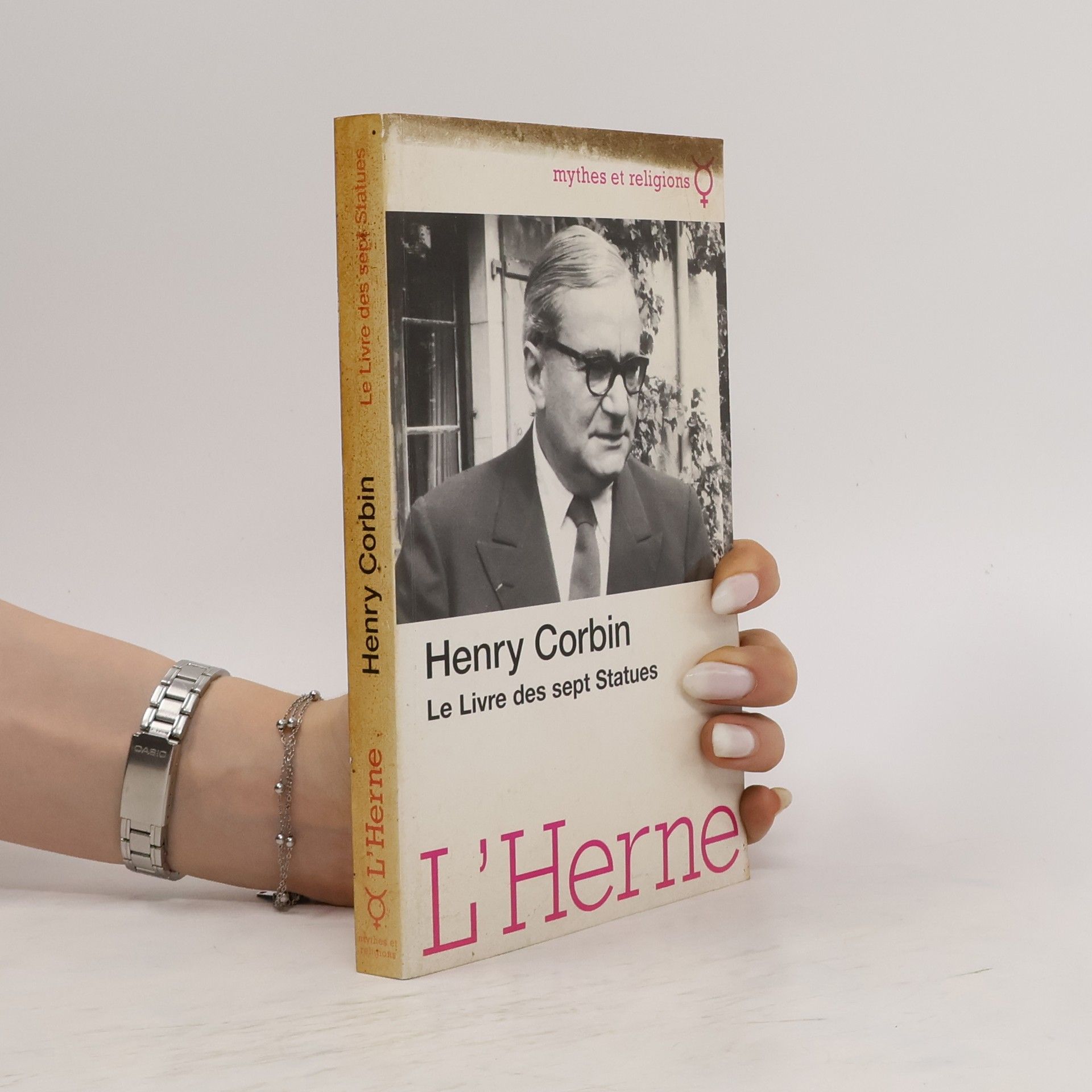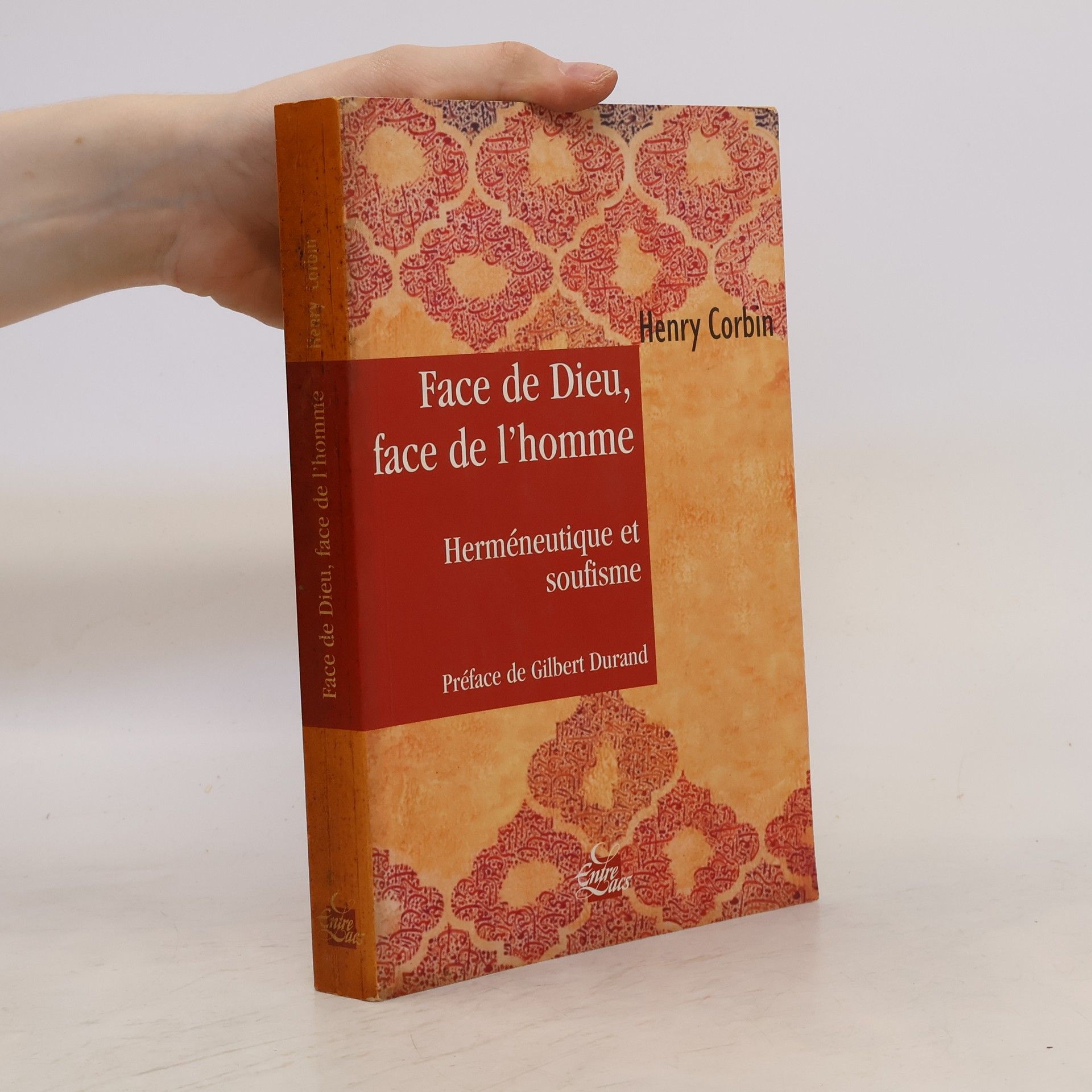It may be that the world which our authors here describe in symbolic language as the "eighth climate" will be seen by Western people as the "lost continent." Should some of them be searching for it, the Spiritual Masters whom the present book seeks to interpret will perhaps serve as their guides.
Henry Corbin Books
Henry Corbin was a philosopher, theologian, and professor of Islamic studies whose work bridged Western philosophical traditions with the mysticism of the Islamic world. His early sensitivity to music foreshadowed the profound resonance and poetics that permeate his writings. A pivotal encounter with the 12th-century Persian mystic Suhrawardi shaped his life's trajectory, illuminating a path where Platonism intertwined with ancient Persian angelology. Corbin fundamentally redirected the study of Islamic philosophy, demonstrating its persistent vitality in the Eastern world, particularly Iran, thereby challenging the notion of its cessation after Ibn Rushd.







Alone with the Alone
Creative Imagination in the Sūfism of Ibn 'Arabī
- 440 pages
- 16 hours of reading
Ibn 'Arabi, a prominent mystic, significantly influenced Shi'ite Sufism through his profound personal experiences and intellectual insights. Henry Corbin explores the connections between Islamic mysticism and Western mystical thought, drawing parallels between Ibn 'Arabi's concepts and Shakespeare's implied cosmology in works like HAMLET and THE TEMPEST. This comparative analysis highlights the shared themes of the imaginal realm and the "place of souls," enriching the understanding of both traditions. The book includes five plates, two in color.
Creative Imagination in the Sufism of Ibn Arabi
- 424 pages
- 15 hours of reading
An analysis of the life and doctrines of the Spanish-born Arab theologian.
This work, incorporating previously unpublished interviews and articles, retraces the quest of Henry Corbin into the imaginal realm of the unseen self, the domains of angels and numinous beings. A study of religious philosophy, exploration of visionary faith, these pages offer a superb meditation of the great themes of Perso-Islamic mysticism—the Sufi theory of knowledge, the voyage within the soul, le rituel de la coupe —and an illuminating glimpse into the philosophic universes of Sohravardi, Ibn Arabi, and Molla Sarda Shirazi.
Jung, Buddhism, and the Incarnation of Sophia
- 208 pages
- 8 hours of reading
Examines the work of Carl Jung in relation to Eastern religion, the wisdom teachings of the Sophia, Sufi mysticism, and visionary spirituality
Man of Light in Iranian Sufism
- 174 pages
- 7 hours of reading
"In the Sufism of ancient Iran, the quest for dawning Light symbolizes the mystic's search for illuminated self-realization. In the path of this spiritual journey, the light arising in one's inner darkness is the Northern Light or the Midnight Sun, which is the brilliant light of truth offering freedom from egotism and from slavery to material existence. The Man of Light in Iranian Sufism presents a penetrating analysis of the writings of the great Iranian Sufis such as Suhrawardi, Semnani, and Najm al-Din Kubra, in which Corbin sees an unfolding and continuity of the idea of light and color as symbols of spiritual development. This intellectually exacting text goes beyond theoretical speculation: Corbin's combination of analysis and clear insight beckons the reader to apprehend the intuitive dimensions of the material being discussed. The Man of Light in Iranian Sufism remains one of the most important expositions of classical Persian Sufism available to a Western audience."--Provided by publisher
Le livre des sept statues
- 218 pages
- 8 hours of reading
Henry Corbin a su montrer au fil de ses travaux quelle était l'importance de la figure de l'Imâm en islam iranien. Dans les articles qui composent ce recueil, il poursuit cette mise en évidence de l'Imâm : le guide, qui est à la fois " la Face divine montrée à l'homme et la Face que l'homme montre à Dieu ". Mais cette exploration le conduit bien au-delà de l'Iran, car cette double figure vient aussi interroger les autres religions, et en particulier les théologies chrétiennes de l'Incarnation. Selon Henry Corbin, on ne peut vraiment comprendre l'intention profonde de l'islam iranien, sans procéder à une herméneutique comparée, impossible sans le monde " imaginal " sur lequel l'ouverture du recueil fait ici le point de façon complète. Ainsi pourra-t-on lire un de ses chef-d'œuvre en ce domaine : l'éclairage mutuel de la gnose ismaélienne et de la pensée du grand visionnaire suédois Swedenborg. Sans déconnecter la métaphysique des sciences des religions, le voyage nous dévoile le sens de ces philosophies prophétiques, de ces théosophies mystiques.
Spiritualités vivantes - 241: L'âme de l'Iran
- 240 pages
- 9 hours of reading
L'Âme de l'Iran, grand classique de l'iranologie, rassemble en un dialogue rare les meilleurs spécialistes de la civilisation perse, l'une des plus anciennes, et aujourd'hui encore au coeur de l'histoire mondiale. " Patrie des philosophes et des poètes ", selon l'expression d'Henry Corbin, l'Iran est au carrefour de deux continents spirituels. En rappelant tout l'héritage de la Perse, de l'ancienne religion de Zoroastre jusqu'à l'islam chi'ite, et en saisissant au vol l'âme de cette civilisation qui fit se rencontrer et se mêler tant de cultures, les auteurs célèbrent les retrouvailles de l'Orient et de l'Occident en leur berceau commun. Daryush Shayegan, dans sa préface, souligne la valeur toujours actuelle de ce volume aux intervenants prestigieux.



